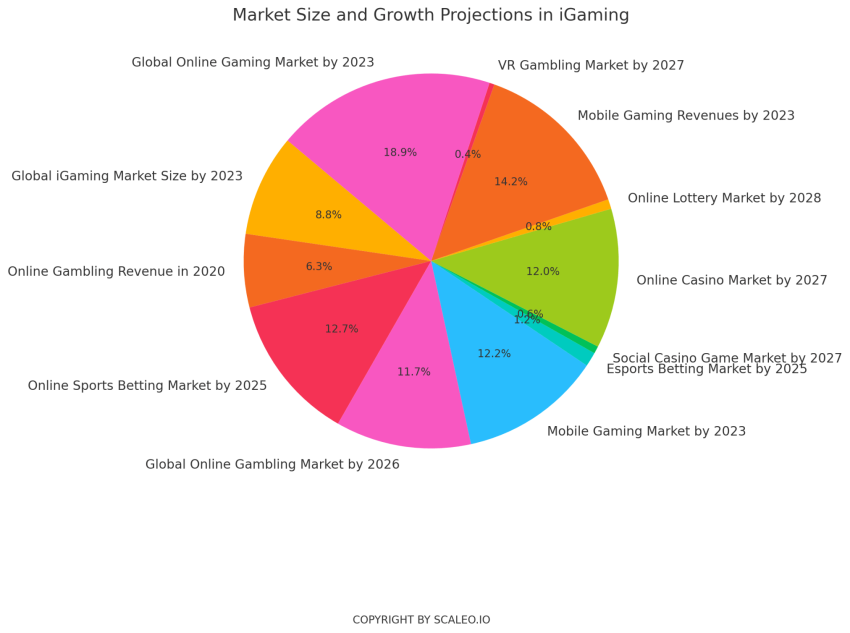The iGaming industry insights reveal a dynamic landscape marked by rapid advancements and shifting market factors. As one of the fastest-growing sectors in global digital entertainment, these insights reflect key players in iGaming, who are consistently adapting to emerging trends and consumer preferences. The growing prominence of technological innovations in iGaming, from AI-driven gaming experiences to blockchain applications, signifies how the sector is evolving. With exciting iGaming trends for 2025 on the horizon, stakeholders are keenly observing the impact of various emerging markets in iGaming, especially in regions like Africa and Asia. In this article, we delve deep into these pivotal changes and explore the market dynamics that are shaping the future of online gaming.
Delving into the realm of digital gaming, industry analytics showcase distinctive patterns and growth trajectories enveloped within this vibrant sector. The online gambling market is rich with diverse platforms, innovative strategies, and a variety of stakeholders intent on capitalizing on this burgeoning digital entertainment wave. Not only do technological advancements play a critical role, but the evolving preferences of players and regulatory landscapes introduce unique challenges and opportunities for success. As we transition towards a deeper understanding of the sector, terminology such as interactive gaming, virtual gambling experiences, and the rise of new gaming frontiers will enrich our exploration and comprehension of this exciting industry.
Understanding iGaming Industry Insights: Key Players and Market Dynamics
The iGaming sector has been experiencing remarkable transformations, largely driven by the key players who dominate the market. Companies like **Bet365**, **William Hill**, and **PokerStars** not only contribute to vast revenue but also set benchmarks for innovation and customer experience within the industry. Understanding their strategies and operations gives valuable insights into the evolving landscape of the iGaming industry. Moreover, the shift in consumer preferences toward mobile and immersive gaming experiences has prompted these industry giants to adapt their offerings continuously, ensuring they remain at the forefront of the iGaming market dynamics.
In addition to established companies, emerging players are making significant strides in the market by leveraging cutting-edge technologies and niche marketing strategies. Startups like **Plarium** and **Ezugi** are redefining the gaming experience by incorporating features such as live dealer games and interactive formats that engage players on a deeper level. This diversity in the player pool fosters competition, compelling both new and established companies to innovate continually. Observing these movements provides a comprehensive view of the iGaming dynamic, revealing how adaptability and creativity are essential for staying relevant in an industry that is rapidly evolving.
Technological Innovations Shaping the Future of iGaming
As technological innovations continue to reshape various industries, the iGaming sector is at the forefront of this transformation. From incorporating artificial intelligence (AI) to embracing virtual reality (VR), the gaming experience is becoming increasingly sophisticated and immersive. For instance, AI technologies are used not only to personalize gaming experiences but also to enhance security measures, ensuring player safety in a digital environment. This integration reflects a broader trend in the iGaming industry towards utilizing technology to meet consumer expectations and improve overall engagement.
Furthermore, virtual reality has opened up new avenues for player interaction and engagement. By creating realistic and immersive gaming environments, VR technology allows players to feel as though they are part of a physical casino while playing from their own homes. This merging of digital and traditional gaming experiences is critical as the industry looks ahead to 2025 and beyond, where such innovations are anticipated to play a vital role in driving market expansion and attracting diverse player demographics. Embracing these trends is essential for companies aiming to position themselves as leaders in the increasingly competitive iGaming landscape.
Frequently Asked Questions
What are the key players driving the iGaming market dynamics in 2025?
The iGaming market dynamics in 2025 are primarily influenced by leading companies like Bet365, 888 Holdings, and NetEnt, alongside innovative startups such as Soft2Bet. These key players are leveraging technological advancements to enhance user engagement and adapt to changing consumer preferences. Their investment in new gambling products and a competitive approach towards emerging markets signal a continuous evolution in the industry.
How are technological innovations shaping trends in the iGaming industry?
Technological innovations such as artificial intelligence, machine learning, and virtual reality are significantly shaping trends in the iGaming industry. These technologies enhance player engagement by personalizing gaming experiences and creating immersive environments. As companies adapt to these innovations, they ensure their relevance and competitiveness in a rapidly evolving market, setting the stage for future advancements in iGaming.
| Key Points | Description |
|---|---|
| iGaming Industry Overview | The iGaming industry has rapidly expanded due to evolving technologies and changing consumer preferences. |
| Leading Companies | Significant players include Bet365, 888 Holdings, and NetEnt, alongside innovative newcomers focusing on niche markets. |
| Technological Investments | Companies are investing in user experience and tech innovations such as AI and VR to stay competitive. |
| Human Capital Redefinition | Organizations are shifting towards inclusive company cultures that prioritize employee well-being and diversity. |
| Emerging Markets in Africa | African markets present unique opportunities by integrating local cultures into their gaming strategies. |
Summary
iGaming Industry Insights reveal a sector characterized by rapid growth and innovation. As the industry advances, key players harness technology not just for competition, but to enhance player experience and engagement. The incorporation of technologies such as artificial intelligence and virtual reality demonstrates a commitment to evolving the gaming landscape. Moreover, the focus on human capital highlights the necessity for a supportive work environment to attract top talent. As new markets, particularly in Africa, open up, companies must tailor their strategies to resonate with local cultures, emphasizing the importance of cultural sensitivity in expansion efforts. In summary, the iGaming industry exemplifies resilience and adaptability, positioning itself for continued success in a vibrant and rapidly changing landscape.
